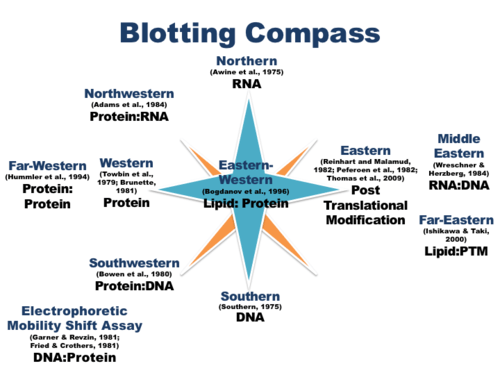Molecular probe
A molecular probe is a group of atoms or molecules used in molecular biology or chemistry to study the properties of other molecules or structures. If some measurable property of the molecular probe used changes when it interacts with the analyte (such as a change in absorbance), the interactions between the probe and the analyte can be studied. This makes it possible to indirectly study the properties of compounds and structures which may be hard to study directly. The choice of molecular probe will depend on which compound or structure is being studied as well as on what property is of interest. Radioactive DNA or RNA sequences are used in molecular genetics to detect the presence of a complementary sequence by molecular hybridization.[1]

Common probes
References
- "Cancerweb Molecular Probe Definition".
- Sirbu, D.; Zeng, L.; Waddell, P. G.; Benniston, A. C. (2019-08-07). "An unprecedented oxidised julolidine-BODIPY conjugate and its application in real-time ratiometric fluorescence sensing of sulfite". Organic & Biomolecular Chemistry. 17 (31): 7360–7368. doi:10.1039/C9OB01316D. ISSN 1477-0539.
External links
- Molecular+Probes at the US National Library of Medicine Medical Subject Headings (MeSH)
- Molecular+Probe+Techniques at the US National Library of Medicine Medical Subject Headings (MeSH)